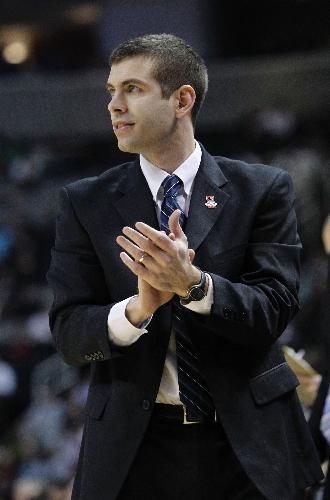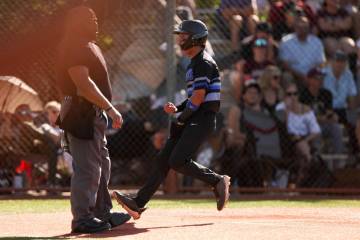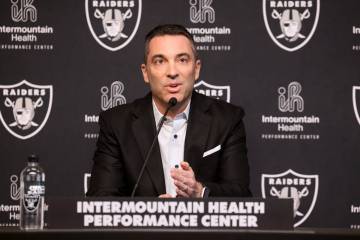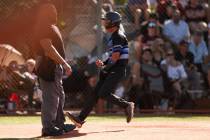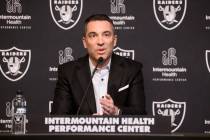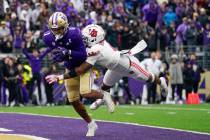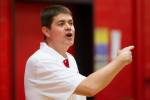Butler, coach climb quickly
The biggest chance Brad Stevens ever took, the best game plan he ever drew up, had nothing to do with a prized recruit or some brilliant set of Xs and Os scrawled out on a greaseboard.
Instead, it came on the day he decided to scrap the business route and go all-in with his first love, basketball.
Ten years after he took the chance and quit his marketing job at a pharmaceutical company to get into the coaching business, the 33-year-old Stevens has led Butler to the Final Four -- one of the youngest to ever take a team this far.
He's also a record holder -- with more wins than anyone in his first three seasons as a head coach, at 88 and counting.
"Right now," Stevens said of leaving Eli Lilly, "it looks like a great idea. At the time, I thought it was something I really wanted to try and really wanted to do."
At 23, fresh out of college and with an understanding girlfriend who would later become his wife, Stevens went for it.
Nothing overly unique there.
But anyone who has spent any time in college sports knows the progress curve for a post-grad assistant rarely bends as sharply upward as Stevens' did.
None of his three coaching counterparts in the Final Four are within 20 years of him. All have been major successes. All were still paying their dues a decade into their coaching careers.
Duke's Mike Krzyzewski, 63, spent three years in his post-grad life serving in the Army and coaching service teams. He got a job as an assistant to Bob Knight at Indiana, then returned to Army for five years as head coach before heading to Duke, which didn't become a regular in the big-time until Coach K had been there a while. His first trip to the Final Four with the Blue Devils came in 1986, when Stevens was 10.
Bob Huggins, 56, of West Virginia spent the first dozen years of his career bouncing between assistant jobs at big schools and head coaching jobs at small schools before he got his first whiff of big-time success at Cincinnati.
Tom Izzo, 55, coached at Ishpeming High in the Upper Peninsula, then went to his alma mater, Northern Michigan, as an assistant, before spending 12 seasons as Jud Heathcote's assistant at Michigan State. He took over the Spartans in 1995.
"I've been very impressed with Brad, how he's handled everything," said Izzo, who will coach against Stevens on Saturday in the national semifinals.
"He seems like a very humble guy -- a blue-collar guy with a white-collar way of putting it," Izzo said.
Stevens said he never put a timeline or a deadline on his coaching pursuit, even though the money at the entry level of that profession lands most people below the poverty line.
"I was told by a person at Lilly, early in my time, that the secret is just to do the job to the best of your ability and don't worry about anything else," Stevens said.
To get in the door, Stevens got current Ohio State coach Thad Matta to hire him at Butler as a low-paid administrator. When Matta left, Todd Lickliter became head coach and made Stevens a full-time assistant.
Lickliter's departure for Iowa after the 2006-07 season put Butler in a bind -- without little time to find a replacement, lest the Bulldogs lose their recruiting class. Lickliter left on a Monday. Stevens had an interview on Tuesday, another on Wednesday and a contract by that night.
IZZO DOWNPLAYS INTEREST IN POSSIBLE OREGON OFFER
EAST LANSING, Mich. -- Michigan State coach Tom Izzo said Monday that he is happy where he is after a report that Oregon wants to make him the richest coach in the nation.
KEZI-TV in Eugene, Ore., cited anonymous sources in reporting that the school plans to offer Izzo college basketball's largest contract with help from Nike Inc. co-founder Phil Knight.
"I have not been contacted," Izzo said Monday. "I'm happy here and I'm focused on trying to win another national championship."
Kentucky gave John Calipari a $31.65 million, eight-year contract last year, the largest known deal for a college basketball coach.
Izzo is earning more than $3 million per season at Michigan State and is under contract through 2016.
THE ASSOCIATED PRESS



